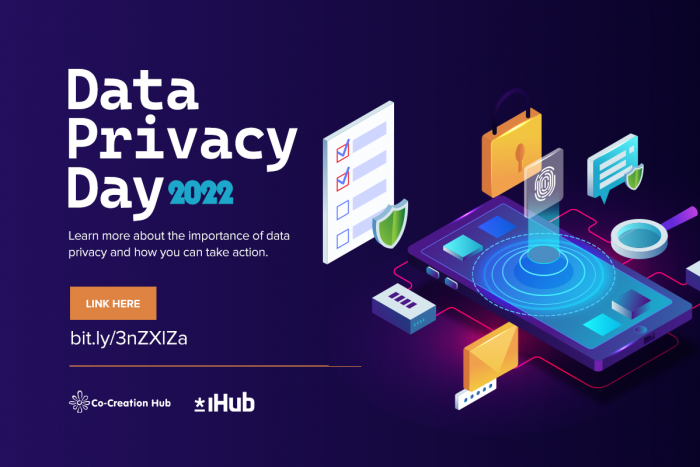The Context of Data Privacy Day
As Internet usage has increased over the years, so has the importance of data privacy. Websites, applications, and social media platforms often need to collect and store personal data about users in order to provide services. However, some applications and platforms may exceed users’ expectations for data collection and usage, leaving users with less privacy than they realized. Other apps and platforms may not place adequate safeguards around the data they collect, which can result in a data breach that compromises user privacy. A lot of people are unaware of and uninformed about how their personal information is being used, collected or shared in the digital world.
Data Privacy Day aims to inspire dialogue and empower individuals and companies to take action. Privacy is the responsibility of everyone and we need to create a conducive environment that protects the personal data of one and all.
Having a dedicated day to celebrate privacy globally further promotes the larger purpose of privacy awareness and helps bring user-focused attention to the management of personal data.

What is Data Privacy?
Data Privacy is the ability of a person to determine for themselves when, how, and to what extent personal information about them is shared with or communicated to others. It is your right to determine who has access to your data.
Personal Information also called Personal Data includes one’s name, mailing address, email address, phone number and medical records, or online and real-world behaviour.
However, Data Privacy is not just about the proper handling of data but also about the public expectation of privacy, focusing on the individual (the user of a product/service) as the key figure.
Why is Data Privacy Important?
In many jurisdictions, privacy is considered a fundamental human right, and data protection laws exist to guard that right. Data privacy is also important because, in order for individuals to be willing to engage online, they have to trust that their personal data will be handled with care. Organizations use data protection practices to demonstrate to their customers and users that they can be trusted with their personal data.
Here are reasons why Data Privacy is important:
- Personal Data can be misused in a number of ways if it is not kept private or if people don’t have the ability to control how their information is used.
- Criminals can use personal data to defraud or harass.
- Entities may sell personal data to advertisers or other outside parties without a person’s consent, which can result in people receiving unwanted marketing or advertising.
- When a person’s activities are tracked and monitored, it may restrict their ability to express themselves freely, especially under repressive governments.
- For businesses, these outcomes can harm their reputation, and result in fines, sanctions, and other legal consequences.
What You Should Know About Data Privacy
- Data Privacy is not the same as Data Security or Information Security.
- Data Privacy defines who has access to data, while Information Security provides tools and policies to restrict access to the data.
- To properly protect data and comply with data protection laws, both Data Privacy and Data Security are required.
- Data Privacy is your right as an individual to be left alone.
- Data Privacy has procedures for proper handling, processing, collecting, and sharing of personal data in compliance with data protection laws.
Important Technologies for Data Privacy
- Encryption: This is a way to conceal information by scrambling it so that it appears to be random data. Only parties with the encryption key can unscramble the information.
- Access Control: This ensures that only authorized parties access systems and data. Access control can be combined with data loss prevention (DLP) to stop sensitive data from leaving the network.
- Two-factor Authentication: This is one of the most important technologies for regular users, as it makes it far harder for attackers to gain unauthorized access to personal accounts.
Best Practices to Ensure Data Privacy
While there are technologies available today that can protect user privacy and keep data more secure, technology alone is not sufficient to protect data privacy. Here are some best practices to follow:
- Collection Limitation: There should be limits to how much personal data is collected.
- Data Quality: Personal data, when collected, should be accurate and related to the purpose it is being used for.
- Purpose Specification: The use of personal data being collected should be specified during the collection process.
- Usage Limitation: Data should not be used for purposes other than what was specified.
- Security safeguards: All data should be kept secure.
- Openness: Personal data collection and usage should not be kept secret from individuals.
- Individual Participation: Individuals have a number of rights, including the right to know who has their personal data, to have their data communicated to them, to know why a request for their data is denied, and to have their personal data corrected or erased.
- Accountability: Anyone who collects data should be held accountable for implementing these principles.

